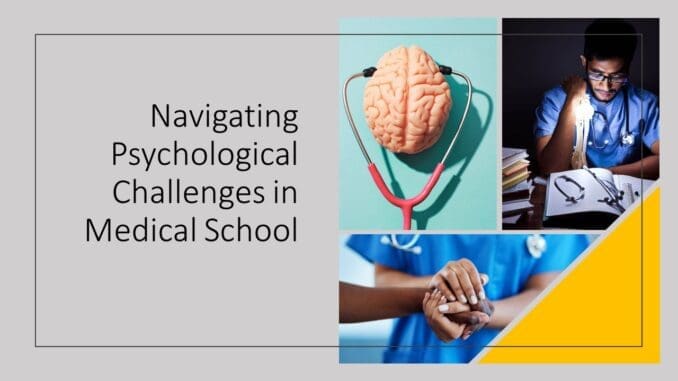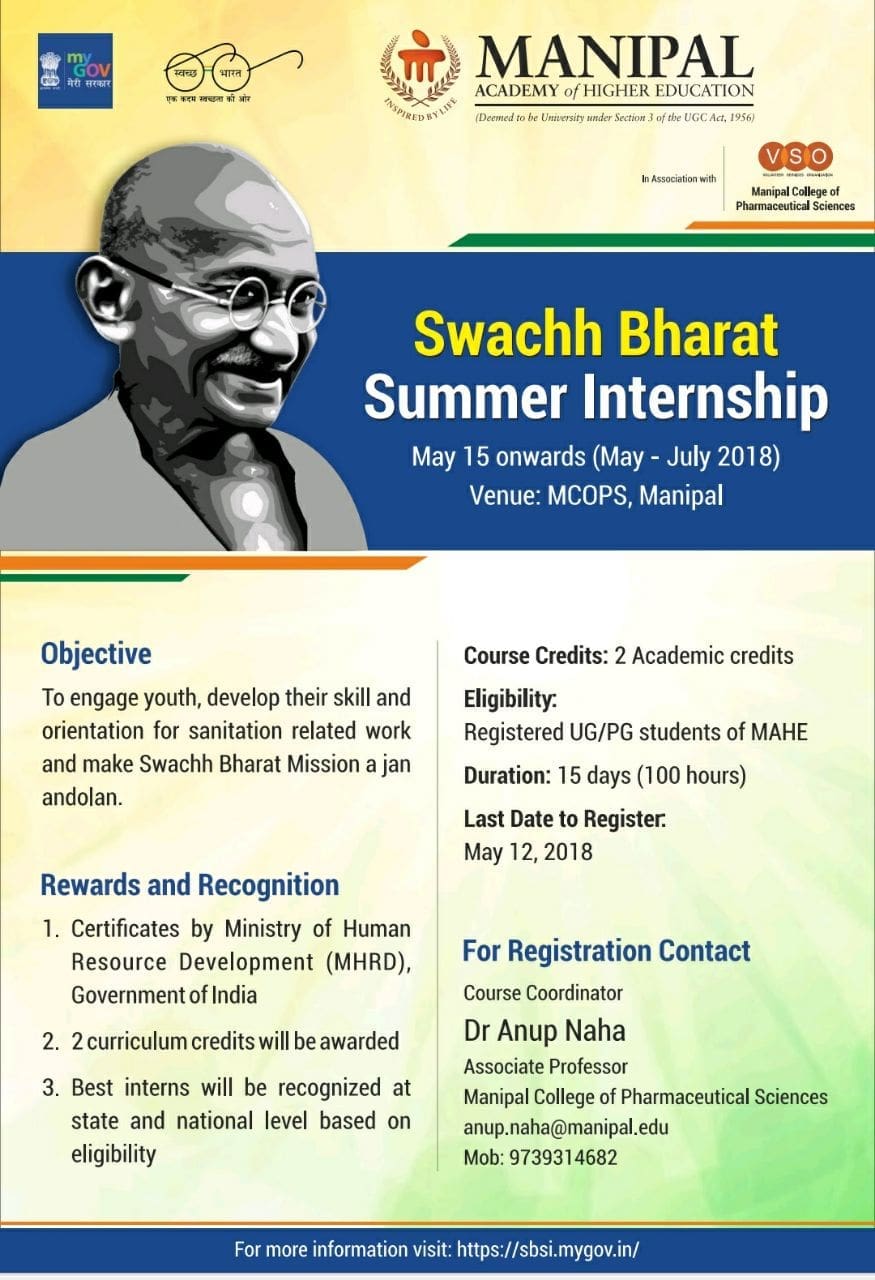
Entering medical school marks a significant milestone in a student’s academic journey. However, this transition presents various psychological challenges that are often left unaddressed. As a psychiatrist, I possess insights into medical students’ distinctive psychological obstacles and the critical need to confront them to ensure their overall well-being and success. But, beyond my professional perspective, I’ve also faced my own share of struggles during my medical education.
Homesickness and Adjustment to Medical School
Stepping away from familiar environments can trigger feelings of homesickness and isolation. Adapting to a new setting, roommates, and a different lifestyle can be daunting. Students might feel disconnected from their usual support networks and struggle to establish new relationships.
Introductions to Seniors
Engaging with senior students can be intimidating. Navigating these interactions is essential to acclimatize to the new academic environment. However, this process can create anxiety and self-doubt as students strive to make positive impressions.
Academic Challenges and Personal Struggles
I, too, faced academic challenges, particularly in anatomy. At one point, I even contemplated quitting my course. My friend, Chiran Babu, helped me and brought me back to the mainstream. Similarly, I had difficulties in studying microbiology. It was the support of my friends that sailed me through these challenging times.
Examination Stress
 As tests and exams commence, the pressure to perform well can be overwhelming. Fear of failure and academic expectations can heighten stress levels and contribute to anxiety, impacting students’ mental well-being.
As tests and exams commence, the pressure to perform well can be overwhelming. Fear of failure and academic expectations can heighten stress levels and contribute to anxiety, impacting students’ mental well-being.
Pressure to Excel
The competitive nature of medical school fosters an intense urge to excel academically. This pressure can drive perfectionism and a constant need to validate oneself, causing substantial stress.
Social Pressure and Support at Medical School
Peer and senior pressure to partake in unhealthy behaviors can put students in distressing situations. Students may become victims of force by friends and seniors to get into substance abuse or develop behavior addictions like internet gambling and pornography addiction, all in an attempt to forget stress.
Information Overload and Study Strategies
 The vast array of study materials, from textbooks to online resources, can lead to confusion and uncertainty. Addressing this challenge necessitates strategies such as relying on reliable sources, crafting study plans, seeking faculty guidance, and adopting active learning techniques. For me, the challenge was choosing the right books, and the proper guidance from friends and teachers, along with sticking to a single book or a few books, became essential, at least from an examination point of view.
The vast array of study materials, from textbooks to online resources, can lead to confusion and uncertainty. Addressing this challenge necessitates strategies such as relying on reliable sources, crafting study plans, seeking faculty guidance, and adopting active learning techniques. For me, the challenge was choosing the right books, and the proper guidance from friends and teachers, along with sticking to a single book or a few books, became essential, at least from an examination point of view.
The NEXT Exam Dilemma
While preparing for the National Exit Exam (NEXT) for post-graduation is essential, students should remember to prioritize their day-to-day learning experiences in clinics and their preparation for sessional and other exams. These foundational experiences are crucial to securing their MBBS and developing the skills that will serve them well in their future medical careers.
Lack of Work-Life Balance
The demanding schedule and extended study hours can jeopardize a balanced lifestyle. This imbalance can contribute to burnout, adversely affecting both academic performance and mental health.
Burnout and Fatigue
The amalgamation of intense competition, academic demands, and long hours can result in burnout and persistent fatigue. These factors can trigger reduced motivation, emotional exhaustion, and an overall decline in mental well-being.
Support Center at Manipal
In the heart of Manipal, just opposite Manipal Melaka Medical College, there is a professionally managed Student Support Centre. This center provides invaluable assistance to medical students, offering a safe space for confidential consultations. Here, students can access counseling services, seek guidance on academic challenges, receive support in times of personal distress, and gain awareness, acceptance, analysis, and action strategies (the four A’s) to navigate their psychological challenges effectively.
Breaking the Stigma
It’s crucial to emphasize that visiting psychiatrists is not a stigma. At KMC Manipal, there is a fifty-year-old Psychiatry Department that is student-friendly and equipped to address the mental health needs of students, including depression, psychosis, and substance abuse. Seeking help when facing such challenges is a sign of strength and resilience.
To Conclude
While medical school presents transformative opportunities, it also brings forth various psychological challenges. As a psychiatrist, I advocate for an open acknowledgment of these issues.
Medical school is not just a test of academic ability but also a rigorous challenge to one’s mental and emotional resilience. With the pressures of exams, clinical rotations, and the high expectations to excel, students often find themselves in need of support services that can help them manage stress, anxiety, and other psychological challenges.
Recognizing the importance of mental well-being in achieving academic and professional success, students must have access to comprehensive health services that address both their physical and emotional needs. For those looking for resources and support tailored to the unique challenges faced by medical students, we encourage you to see post.
Here, you’ll find a wealth of information to support future healthcare professionals’ holistic well-being.
By highlighting the resources available at the Student Support Centre in Manipal, emphasizing the importance of the four A’s—awareness, acceptance, analysis, and action—and breaking the stigma surrounding psychiatric care, we can empower medical students to not just overcome these challenges but thrive throughout their academic journey while safeguarding their mental health.
This personalized support is a lifeline for students pursuing medicine, providing a professional and compassionate helping hand along the way.
About the Author:
 Dr. P.V. Bhandary is a well-known Psychiatrist in Udupi and Medical Director at Dr. A.V. Baliga Memorial Hospital at Doddanagudde, Udupi. He was selected for CADABMA’s Distinguished Psychiatrist Award 2012. This award is initiated for his outstanding services to the marginalized section of society in psychiatry.
Dr. P.V. Bhandary is a well-known Psychiatrist in Udupi and Medical Director at Dr. A.V. Baliga Memorial Hospital at Doddanagudde, Udupi. He was selected for CADABMA’s Distinguished Psychiatrist Award 2012. This award is initiated for his outstanding services to the marginalized section of society in psychiatry.
The award was presented to him at Bangalore in the presence of His Excellency Dr. H.R Bharadwaj, Governor of Karnataka, His Excellency Dr. K Rosaiah, Governor of Tamil Nadu, and His Grace Dr. Bernard Moras, Archbishop of Bangalore, and other dignitaries.



Valid information and need of the hour. If stress in medical school is not handled well we might see a generation who may refuse to take up medicine as career. Periodic mental health support programs can identify and prevent substance use, suicides and drop outs in medical school.